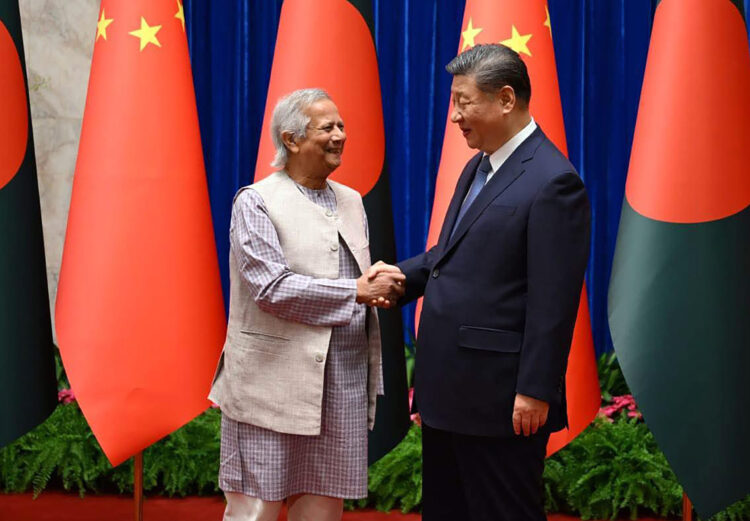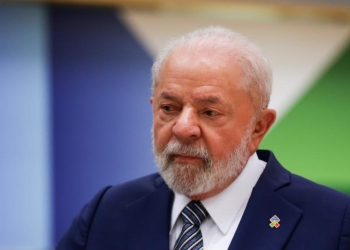New Delhi: In yet another sign of growing Bangladesh-China-Pakistan cooperation, a first trilateral meeting was held in Kunming in China’s southern Yunnan province on June 19 where all three countries vowed their commitment to a “shared” future.
As the three countries held extensive discussions on trilateral cooperation and agreed to move forward – based on the principles of good neighbourliness, mutual trust, equality, openness, inclusiveness, and shared development – the Chinese Foreign Ministry stated that they adhere to true multilateralism and open regionalism, not directed at any third party.
During the meeting, the three sides also agreed to enhance their cooperation for enhancing regional connectivity and deepening cooperation in the diverse fields of bilateral cooperation, including trade and investment, agriculture, digital economy, environmental protection and marine sciences, green infrastructure, culture, education, and people-to-people exchanges.
Pakistani Foreign Secretary Amna Baloch participated in the first phase of the meeting virtually.
It is believed that strong pro-China and anti-India pressure groups in Bangladesh and Pakistan have been working overtime to forge a closer association with the Chinese military in order to purchase more Chinese defence equipment.
On Sunday, at the invitation of the ruling Communist Party of China (CPC), a 10-member high-level delegation of the Bangladesh Nationalist Party (BNP), arrived in China under the leadership of BNP Secretary General Mirza Fakhrul Islam Alamgir.
Notably, this visit is part of BNP’s strategic efforts to deepen its political and diplomatic relations with the Chinese government and the CPC. Previously, in May 2025, a BNP delegation participated in an international political conference in Beijing organised by the CPC, where they engaged in dialogues with political representatives from Southeast Asia, Northeast Asia, South, and Central Asia. BNP is consistently working to strengthen bilateral political and strategic relations with China.
Earlier, from February 24 to March 6, a joint delegation of 21 representatives from eight political parties, including BNP, visited China. The delegation was led by Abdul Moyeen Khan, member of BNP’s National Standing Committee.
Bangladesh’s growing outreach to China and Pakistan under the interim administration of Muhammad Yunus remains quite noticeable since former Prime Minister Sheikh Hasina’s ouster in August 2024.
Recently, Major General (Retd.) Rezzakul Haider Chowdhury, a former Director General of Foreign Intelligence and a convicted figure in the April 2004 Chittagong arms smuggling case, reportedly concluded a 12-day trip to Guangzhou, on June 18. The visit raised speculations that he might still be “active” in anti-India activities being supported by the interim government in Bangladesh.
Reports indicate that another key player in the April 2004 Chittagong arms smuggling case, the self-exiled ULFA chief Paresh Barua has relocated to Xishuangbanna Dai Autonomous Prefecture in the extreme south of Yunnan province, bordering both Myanmar and Laos.
Reliable information also reveals that Bangladesh’s interim National Security Advisor (NSA) Khalilur Rahman recently met the Chinese Ambassador in Dhaka, requesting him to facilitate a meeting with the Director General of Pakistan’s ISI in Beijing.
Interestingly, the Kunming trilateral meeting coincided with Rahman’s Washington visit and his meeting with senior US officials.
For decades, Dhaka-Islamabad relations have remained frigid and hostile. With Yunus at the helm, a silver lining is clearly noticeable in the case of Bangladesh-Pakistan relationship. Analysts believe that Pakistan is leveraging the situation by positioning its non-state actors in Bangladesh, making them mingle with Rohingya refugees and working in conjunction with the radical-Islamist coterie promoting anti-India activities.
It would not be wrong to say that aligning with China’s broader regional interests, both Bangladesh and Pakistan are ready to compromise their own sovereignty, decision making, resources and markets.
Meanwhile, the China-Pakistan Economic Corridor (CPEC) continues to depreciate Pakistan’s industrial strategy, thereby creating huge dependencies on China and jeopardizing Pakistan’s economic future.
(IANS)

















